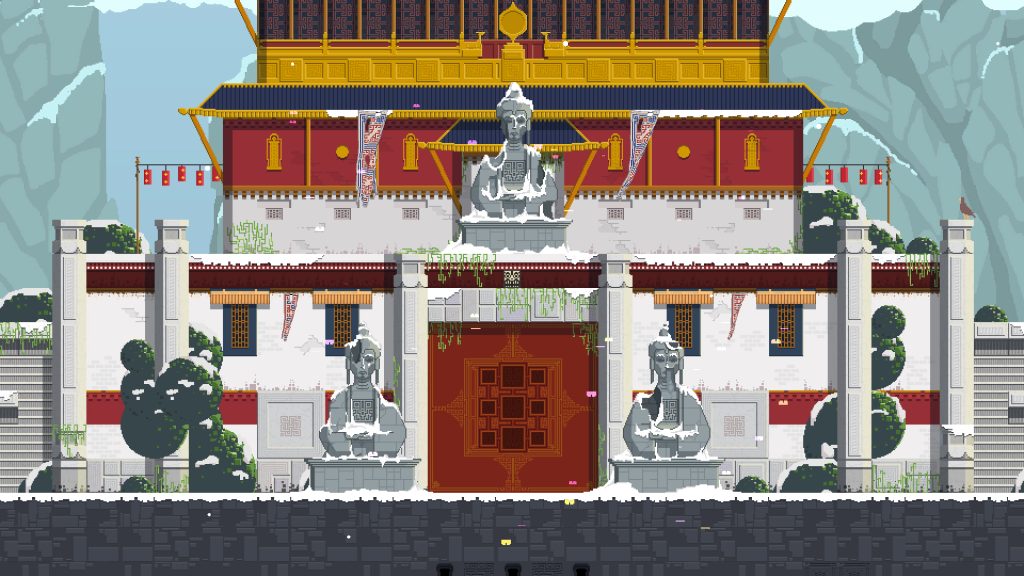What does true sacrifice mean to you?
That’s the question Tom Kitchen continually asked himself as he was designing Mandagon, a new free video game that takes players through a mystical world inspired by the Tibetan Buddhist concept of bardo, the limbo-like phase that occurs between death and rebirth.
“Mandagon started just as a little learning project that I’d tinker with from time to time,” said Kitchen, the game’s lead artist and designer. His approach—and dedication—changed after a death in his family.
“Working on Mandagon obsessively, morning, noon, and night, became a part of my grieving process,” Kitchen recalled. “It was during this time that I began to look into Tibetan Buddhist culture, as it was something I knew little about. I’ve explored themes of life and death in my work as an illustrator and artist prior to Mandagon, but always from a very earthly perspective.”
As players work their way through the game, they’ll encounter totems providing wisdom, statues enabling players to briefly fly, and birds soaring to the sound of windchimes.
The name Mandagon is “essentially meaningless, or an empty vessel” Kitchen explains, describing it as a portmanteau of “mantis, panda and dragon.”
“It’s a meditative, relaxing game that requires your attention and focus to fully appreciate,” Kitchen explained. “The sense of progression and setback based on your ability to perceive and accept your current surroundings is also very interesting. In Mandagon, if you miss a jump you don’t ‘die,’ you just fall.”
Kitchen went on to detail how he illustrated the concepts of ascension and dissension throughout the game. “There are little things, like you’ll collect six tablets for the six bardos, and you’ll then interact with three statues that tie into the three bodies of the Buddha,” he said. “The majority of the game’s mechanics—the lifts and elevators, flight totems, even the humble jump—are all tools of ascension.”
Though Kitchen says he’s “not a religious person by any means,” he found examining the Tibetan Book of the Dead to be integral to his healing process. “I tend to believe that there is knowledge and insight to be found everywhere. Exploring concepts of an afterlife, thinking of the moral implication of reincarnation, and engaging in mortality with an un-morbid, positive approach is a great way to find more understanding and meaning in life.”
It was those concepts of the afterlife that Kitchen and his team at the UK-based Blind Sky Studios tried to convey with the artistic and musical choices they made while designing Mandagon. But to hear Kitchen tell it, creating the game was easy once he learned more about Tibetan Buddhism.
“Once I’d found my focus with Tibet, the game almost designed itself. The muted blue-grey of the mountains peppered with vibrant prayer flags, how bright white temples cut into landscapes, it was somehow lonely and full of life all at once.”
Ultimately, Mandagon is a game that tells a story about sacrifice and rebirth. “With Mandagon I’d like to remove some of the morbid stigma that surrounds death,” Kitchen said. “The idea of sacrifice in the game is told through an interaction between parent and child. The sacrifice of being a father or mother to someone is a very admirable thing to me, and a sacrifice I hope to be capable of making one day.”
Thank you for subscribing to Tricycle! As a nonprofit, we depend on readers like you to keep Buddhist teachings and practices widely available.







